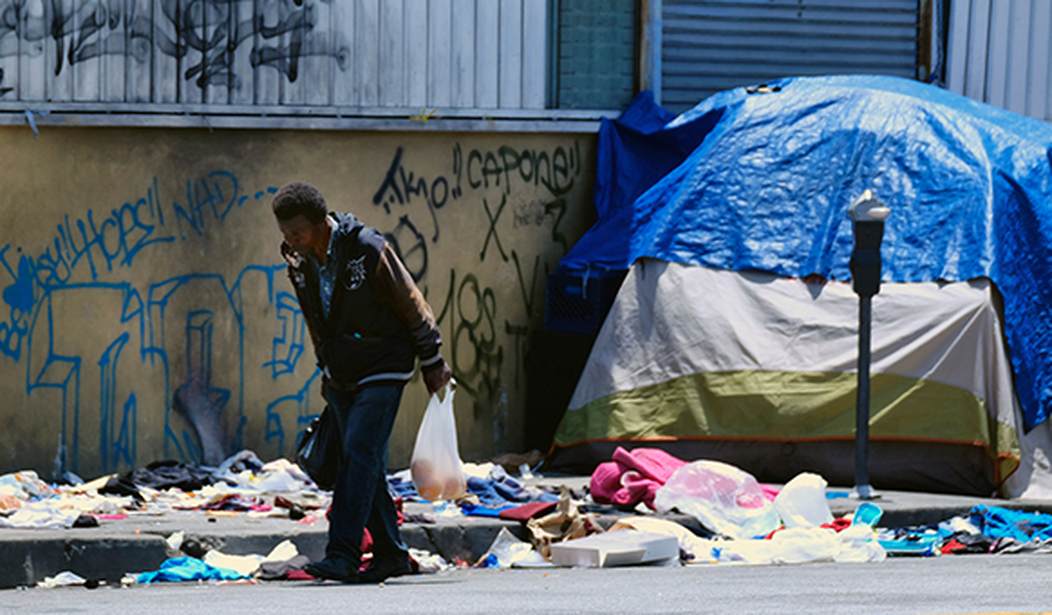The endemic problem of homelessness in California is well known and has been a growing issue for quite a few years. In addition to the dangers faced by the homeless themselves, the public has grown increasingly alarmed at the surges that have been seen in crime, drug trafficking, drug abuse, sexual assaults, and everything else that comes along with large, semi-permanent homeless encampments. Unfortunately, it’s a daunting problem that the government has been completely unable to make a significant dent in, particularly in the larger, urban areas like Los Angeles and San Francisco.
But San Mateo County has announced a bold new approach that they claim will deliver real results and do so remarkably quickly. In fact, they claim they will be able to reduce their homeless population to zero and have a roof over everyone’s heads by the end of this year. It’s a laudable goal and it would be amazing to see, but how do they plan to do it? Well, San Mateo has far fewer homeless people than the large cities, so they are bundling up all the funding they can get and purchasing a number of empty hotels. They will move all of the homeless into those rooms and tend to them there. After this brief excerpt from the LA Times explaining the details, we’ll discuss how this approach is about to totally blow up in their faces.
Getting everyone currently living on the street into housing in the next nine months may sound like a reach for places such as San Francisco or Los Angeles, which have wrestled with the issue for decades and where tens of thousands of people are unhoused.
But this is San Mateo County, population 760,000, where the last one-night homeless count showed 900 people in the streets and another 600 in shelters — a smaller population than some L.A. neighborhoods.
Using federal CARES Act funds and state Homekey money, the county has been purchasing hotels and similar buildings to convert into temporary and permanent housing. The county closed on a fourth hotel within the last week and will have a fifth come online in early April.
Someone wiser than me once pointed out that when you spend money to support something, you get more of that thing. If you invest public funds to make it easier for people to safely inject drugs in public spaces, you’ll wind up with more people injecting drugs in public spaces. And if you spend money to make it easier to be homeless, you’re going to get more homeless people.
People who have studied the problem over the years have reported that word travels surprisingly fast among the homeless community. That’s true whether you’re talking about a new food kitchen that’s opened up or a distribution point for free clothing or blankets. San Mateo County claims that they recently did an overnight survey and found that they had 900 people living on the streets. What do you think is going to happen when word gets out that homeless people in that county get a free hotel room to live in?
Those rooms are going to fill up immediately. And even if there are no more rooms available, newly arriving homeless people will find much less competition for camping spots on public grounds and shorter lines at the food pantries and other charitable outlets. This isn’t a case of a single bucket of water in a desert that you need to empty. It’s a bucket in the middle of a very large pool. And as you drain the original water out of the bucket, more will rush in to replace it.
I’ve tried to make this point before but it bears repeating. While I don’t claim to have a detailed approach that would solve the homelessness crisis, I believe can make a few general assumptions. The biggest of these is that the solution to the homelessness crisis is not to put roofs over the heads of more homeless people. It’s to have a lot less homeless people. Many of them are probably in need of mental health treatment and should be moved into facilities equipped to deal with those issues. Others are dealing with substance abuse issues and treatment can and should be made available to all who are willing to accept it.
But the biggest drivers of homelessness are actually caused by the government programs that essentially sponsor and attract the homeless. Granted, California is always going to face more of a challenge in this area because the climate there makes it far easier to survive outdoors than in the northeast or midwest, particularly in the winter. But when you add in all of the free assistance programs that the government funds, you really incentivize people to come from far and wide to take advantage of those benefits. That’s not a complete solution to what I freely admit is a daunting problem, but it’s a starting point.








Join the conversation as a VIP Member